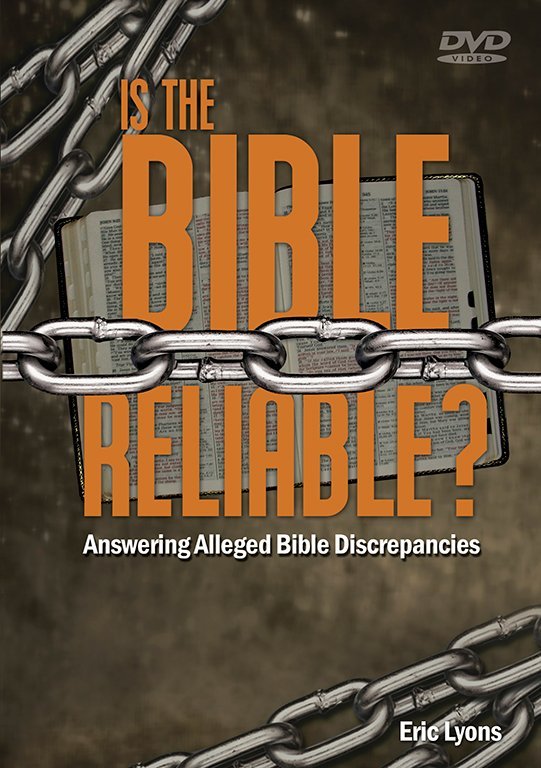Should Moses Have Been Executed for Committing Murder?
Should Moses Have Been Executed for Committing Murder?
Did Moses break God’s law by killing an Egyptian (Exodus 2:11-12)? Was he guilty of murder and deserving of judicial execution as Genesis 9:6 indicated for those, like Moses, who lived during the Patriarchal period? How could Moses commit murder and then turn around and command under the Law of Moses that those who commit murder must be executed (Exodus 21:12)? Was Moses a hypocrite with a double standard? Did God show partiality towards Moses in endorsing execution for others or even directly executing others, but not Moses?
Relevant Preliminary Principles
Killing, Murder, and Execution Protocols
To answer these questions, first we must allow the Bible to define its own terms. Some mistakenly equate “killing” with “murder,” as though they are one and the same and are all outlawed by God. Such is not the case, however, as has been discussed elsewhere.1 There are many instances in Scripture where killing is authorized (and even commanded in some cases), including killing animals as food,2 executing criminals,3 laying down one’s life for a friend (John 15:13), and in the Old Testament, killing animals as sacrifices and entire civilizations as Divine punishment for their wickedness.4 Modern translations help to distinguish between the God-authorized killing of humans and unauthorized forms of killing (i.e., murder). The Law of Moses also distinguished between premeditated murder, which warranted the death penalty (e.g., Exodus 21:12-14), and unintentional killing (i.e., “manslaughter”—Exodus 21:13), which did not. So before assuming Moses’ guilt or hypocrisy, we must know with certainty what type of killing Moses engaged in and the laws that were relevant at the time of the homicide.
Patriarchal vs. Mosaic Periods
That said, with regard to God’s law governing homicide at the time of the incident, we must also keep in mind that Moses was not subject to the Law of Moses until God (not Moses) instituted it at Mount Sinai several decades later. During the Patriarchal period—the period prior to the Mosaic Law system—God communicated His will directly to individuals.5 Genesis 9:6—“Whoever sheds man’s blood, by man his blood shall be shed”—is the only information given to us about how those who killed humans post-Flood and pre-Mosaic Law were to be handled. However, it is certain that more information than this was given to humanity by God regarding bloodshed. .
During the same time period, Abram attacked Chedorlaomer, Tidal, Amraphel, and Arioch with 318 armed and trained servants in order to free Lot from captivity (Genesis 14:5-16). His actions were sanctioned by God because, according to Melchizedek, “priest of God Most High” (vs. 18), God delivered Abram’s enemies into his hand (vs. 20). If Abram shed blood with his armed servants, why was his blood not shed on that occasion? The answer is that not all forms of bloodshed were under consideration in the edict given in Genesis 9:6. At the very least, Abram’s activity on behalf of Lot was sanctioned, as was the bloodshed that would have to occur in order to follow out the command given in Genesis 9:6 (i.e., someone has to shed the blood of the blood shedder).
So it is reasonable to assume that God communicated relevant civil principles and protocols to the patriarchs before the Law of Moses—principles that Moses would have been privy to, though not recorded for us to read. For instance, with regard to capital punishment for crimes under the Law of Moses, two or more witnesses were required by God before the death penalty could be implemented (Deuteronomy 19:15). One witness was not sufficient (Deuteronomy 17:6).6 It is reasonable to suppose that if such an injunction was set in place under the Law of Moses to insure justice, a similar injunction could have been in effect during the Patriarchal period, especially since the Patriarchal system continued to be in effect throughout the Mosaic period for non-Israelites.
Favoritism by God?
With regard to “favoritism” by God, Scripture unequivocally states that God does not show partiality (e.g., Deuteronomy 10:17; Acts 10:34; Romans 2:11; Ephesians 6:9; 1 Peter 1:17). In order to prove that a biblical incident contradicts that truth, one would have to show that God’s behavior in the incident truly did show favoritism in the same sense that those passages preclude.
In other words, one must understand what Scripture means when it describes God as “impartial.” When we allow Scripture to define the meaning of its own statements, we find that God’s impartiality means that He is always just to all, not merely to some. He is the “Author of eternal salvation to all [not just some—JM] who obey Him” (Hebrews 5:9), whether Jew, Greek, slave, free, male or female (Galatians 3:28).
Similarly, all of those “who do not obey the gospel of our Lord Jesus Christ…shall be punished with everlasting destruction from the presence of the Lord” (2 Thessalonians 1:8-9). “For we must all [not some—JM] appear before the judgment seat of Christ, that each one may receive the things done in the body, according to what he has done, whether good or bad” (2 Corinthians 5:10). But God is a “just judge” (Psalm 7:11). Truly, “he who does wrong will be repaid for what he has done, and there is no partiality” (Colossians 3:25). But the question is, according to Scripture, how and when is the breaker of God’s law “repaid” by God justly?
It is clear from Scripture that God’s justice is carried out in many ways. Sometimes God directly and physically punishes individuals (Leviticus 10:1-3), cities (Genesis 18-19), or even the world (Genesis 6-9) for various sins. At other times, He may not personally do so. He might, instead, punish sinners through other individuals (Numbers 25; Deuteronomy 21:21; Hebrews 12:5-11), nations (Ezekiel 26:1-3), or even nature (Deuteronomy 28). Sometimes God immediately punishes law breakers (2 Samuel 6; Acts 5; 12:23), while at other times, He may allow time to pass before His punishment is carried out (Genesis 6:3; 2 Peter 3). Some may receive various punishments while still physically alive (Deuteronomy 32:51-52), and others may not be punished until the afterlife (Luke 16:25). His rationale for His decisions and implementations is sometimes explicitly stated, sometimes implied, and sometimes unclear. One thing is certain, however, according to the Bible: those who deserve punishment will inevitably receive it at some point—either now or later—if they do not receive forgiveness from God in the prescribed manner before their death. The date of the execution of God’s justice may not be when we would choose to carry it out, but it is inevitable that it will come. That is God’s justice.
Assessing the Available Evidence
With these principles in place, we can now assess more specifically the incident in question. In Exodus 2:11, we read that Moses witnessed an Egyptian beating a Hebrew. Stephen adds to the information recorded by Moses, explaining that Moses, seeing a Hebrew “suffer wrong,” wished to defend and avenge him (Acts 7:24). Obviously, Moses would not wish to be seen by Egyptians defending a Hebrew against an Egyptian, so “he looked this way and that, and seeing no one, he struck down [smote—ASV] the Egyptian and hid him in the sand” (Exodus 2:12, ESV).
Hypocritical?
Clearly, Moses killed the Egyptian. Was he being hypocritical by enforcing execution for murder under the Mosaic law but not for himself? Note first that it is not clear from the text whether the Egyptian’s death was premeditated murder by Moses. Is it possible that Moses attempted by force to stop the Egyptian from mistreating the Hebrew, and in the ensuing struggle, Moses delivered a fatal blow without lethal intent? Such a scenario is not inconceivable, and God’s punishment for such an action (under the Law of Moses and possibly during the Patriarchal period) would not demand execution. One could easily envision a courageous security officer confronting an armed thug who entered a bank and began firing at customers. While trying to disarm gunmen, it is not unusual for the gunmen, himself, to be shot in the ensuing scuffle.
That said, even if Moses were guilty of premeditated murder, under the Law of Moses, it would have been illegal to execute him without two witnesses to the event. The text indicates that, apparently, the only potential witness was the Israelite whom Moses had saved—if even he was coherent enough to witness the incident (Exodus 2:12).7 If witnesses were not available, execution could not be carried out by Mosaic standards—and therefore, possibly Patriarchal standards as well. Bottom line: Moses cannot be accused of hypocrisy or double standards.
Justified?
Also note that some commentators suggest that the Egyptian whom Moses killed was beating the Hebrew to death.8 The same term translated “beating” in Exodus 2:11 can be translated “killing” as well,9 as it is so translated in the following verse—2:12. If the Egyptian did, in fact, murder the Hebrew, Moses may have been following God’s instructions in Genesis 9:6—an injunction given to humanity that apparently transcended civil government, since no civil government existed when the rule was given to Noah’s family as they exited the Ark.
A further point to keep in mind is that upon growing up, while in Egypt, Moses lived “by faith” (Hebrews 11:24)—and faith comes from hearing the Word of God (Romans 10:17). The Hebrews writer indicates that during the time period in question, Moses had chosen, by faith, to embrace his Hebrew heritage and reject the sonship of the Egyptian princess (Hebrews 11:24). He was already “looking ahead to his reward” (Hebrews 11:26). In fact, according to Stephen, Moses already rightly considered himself to be the redeemer of the Israelites and a hand for God in executing wrath on Egypt (Acts 7:25). His determination to defend and avenge the Hebrew slave was a direct result of his understanding that role (Acts 7:24). As such, he may have had the same God-given authority Samson was given to destroy the wicked, making the death of the Egyptian a God-authorized form of killing. According to Stephen, “he supposed that his brethren would have understood that God would deliver them by his hand, but they did not understand” (Acts 7:25). So he fled, apparently assuming that they had rejected his leadership.
Favoritism?
Did God “play favorites” in this instance by not pressing for Moses’ execution? Again, Moses may not have deserved capital punishment. As has been highlighted, Scripture (i.e., God) never stipulated execution for all kinds of bloodshed. Some bloodshed deserved different punishments, and some bloodshed was actually commanded by God. Also keep in mind that the action alone was not the only factor considered when making a judgment about homicide: motive was of concern, as well. So Moses might not have deserved the death penalty under God’s Law.
Further, the text does not explicitly delineate whether or not God endorsed an execution in the case of Moses. Instead, we are left to speculate from the very small amount of information that is given about the incident. Thus, even if it could be proved that Moses was at fault in some way, there is no evidence that God showed favoritism towards him with regard to it. God typically leaves it up to humans whether or not they will carry out His stipulations (and they typically choose not to do so).
Would it not, however, show partiality by God if He did not demand Moses’ execution by somebody or personally execute Moses? Again, that question first assumes Moses’ action warranted the death penalty—and it very well may not have. Second, it assumes that “demanding” execution (i.e., contacting human authorities after the fact, instructing them to execute the law breaker) was something God would typically do and that He must necessarily do in order to be impartial. It is clear from Scripture, however, that God generally did not do so, even when execution was warranted. For instance, in the case of the Sabbath-breaker in Numbers 15:32-36 or Achan in Joshua 7, the people came to God for counsel—He did not go to them to demand the execution.
But why, then, did God not personally execute Moses, as He did others at various times? Why would God, instead, choose to make a murderer the leader of His “holy” people? First, all humans are sinners (Romans 3:23; Ecclesiastes 7:20) deserving death (Romans 6:23). “There is none righteous, no, not one” (Romans 3:10). It matters not what the sin is (James 2:10). Sin separates us from God’s holiness—period (Isaiah 59:1-2). Since we are all sinners, God must use sinners to accomplish His will, or execute all of us. He, knowing from the beginning that humans would be sinners and in need of salvation,10 chooses to work with us, despite what we deserve.
Further, even if Moses was guilty of pre-meditated murder (and he might not have been), it is clear from Scripture that even when God knew of those who had committed civil crimes warranting death, as stated above, He rarely stepped in to carry out the execution Himself. As a general rule, He left the interpretation and implementation of His precepts to humanity (as He does today). In cases where God chose to directly execute an individual, one must keep in mind the principle discussed in a previous section. In order to prove that God had been at fault in some way, one would have to prove that God really had violated His claims of impartiality in that instance. Choosing to directly, physically execute one person (or having someone else do so) and not another, does not necessarily show favoritism, however. Why? Because physical execution is not necessarily a punishment in every case, and because it is not necessarily the “worst” possible punishment even when it is implemented as a punishment. Some, for example, may wish to be “put out of their misery” by being killed (1 Samuel 31:4-5) and others would rather live to see another day. Some may prefer to die, since the nature of their sin is such that it will be difficult for them to refrain from entering into it again. So they may prefer to have the opportunity to repent, die, and enter into judgment with a clean slate. Others, again, may wish to live, because they do not care about judgment, but rather, only enjoying the passing pleasures of sin.
So while God may make a general rule for humans to follow as they judge each other and implement punishments to the best of their limited abilities (e.g., execution), He, being omniscient and understanding with perfection the hearts of men and the far reaching impact of any punishment or decision, may personally choose a different punishment instead (or delay the implementation of the same punishment) for the benefit of the individual, society, or world, knowing all the while that the “day of reckoning” is coming. If God chooses to immediately and directly execute someone, execute them later, let someone else do it, or not even do it at all, it would not necessarily mean that He is being impartial, as long as those who deserve punishment receive fair punishment at some point—even if it is after they die. The biblically prescribed punishment for disobeying God’s rules (i.e., sinning) is spiritual death (Romans 6:23)—separation from God (Isaiah 59:1-2) and eventual everlasting destruction from the presence of the Lord (2 Thessalonians 1:9). Those who do not obey God’s prescription for forgiveness11 will receive that punishment, even if they do not receive physical execution beforehand. When we consider that any earthly punishment should be counted as nothing when compared to the infinite length of eternity, we can see that the punishment which ultimately matters is the one that has not even been given to anyone yet, and will not be given until Judgment Day. At that point, God will step in and impartially implement the spiritual death penalty to all who remain disobediently in sin outside of Christ.12 Until then, He allows humanity to decide whether or not to obey His protocols and simultaneously works through Providence to bring about His will.
With these principles in mind, God cannot be charged with showing favoritism towards Moses in any way. Whether or not Moses was at fault in any way by killing the Egyptian, it is clear that he was a man characterized by faithful (Hebrews 11:24-29), humble (Numbers 12:3), penitent submission to God. As a faithful follower of God, it is clear that he will enter heaven on Judgment Day along with any who can similarly claim faithful allegiance to God.
Conclusion
Bottom line: while he obviously went against the wishes of the Egyptian Pharaoh by killing an Egyptian, the evidence does not support the contention that Moses was hypocritical or that he should have been executed for killing the Egyptian based on God’s law. Nor does it support the accusation that God showed favoritism to Moses by not personally executing him.13 In short, there are many unknown variables in this story, and to assume guilt rather than innocence without more information would be unfair. Ironically, assuming God’s or Moses’ guilt without more evidence would be exhibiting partiality against God or Moses by not giving them the benefit of the doubt.
Endnotes
1 Kyle Butt (2009), “Killing, Murder, and the Bible,” Apologetics Press, https://apologeticspress.org/apcontent.aspx?category=13&article=2794.
2 Kyle Butt (2003), “Way Out of Context: ‘Thou Shalt Not Kill’—Go Vegetarian,” Apologetics Press, https://apologeticspress.org/APContent.aspx?category=11&article=950&topic=75.
3 Dave Miller (2012), “Capital Punishment and the Bible,” Reason & Revelation, 32[7]:62-71.
4 Eric Lyons (2012), “God’s Just Destruction of the Canaanites,” Apologetics Press, https://apologeticspress.org/APContent.aspx?category=12&article=1630.
5 Wayne Jackson (2017), “To What Law Were the Ancient Gentiles Accountable?” ChristianCourier.com, https://www.christiancourier.com/articles/759-to-what-law-were-the-ancient-gentiles-accountable; Eric Lyons (2017), “Systematically Understanding the Bible Better [Part I],” Reason & Revelation, 37[2]:23.
6 As an example of the precision with which God’s rules regarding capital punishment were to be followed, consider the case in John 8 of a woman allegedly caught in adultery who was brought to Jesus to be executed [cf. Dave Miller (2003), “The Adulterous Woman,” Apologetics Press, https://apologeticspress.org/apcontent.aspx?category=11&article=1277].
7 Note that knowledge of the incident by other Hebrews (Exodus 2:14) could have been due, not to an actual eye witness (considering that the Hebrew who was beaten could have been incoherent or dead), but due to circumstantial evidence (e.g., the uncovering of the body in the vicinity of where Moses was known to be).
8 E.g., Robert Jamieson, A.R. Fausset, David Brown (2012), Jamieson, Fausset, and Brown Commentary (Electronic Database: WORDsearch); Adam Clarke (2013), Adam Clarke’s Commentary (Electronic Database: Wordsearch); Clyde M. Woods (1972), People’s Old Testament Notes: Volume 1—Genesis-Exodus (Woods Publications: Henderson, TN), p. 129.
9 L. Koehler, W. Baumgartner, M.E.J. Richardson, and J.J. Stamm (1994–2000), The Hebrew and Aramaic Lexicon of the Old Testament (Leiden: E.J. Brill), p. 698; William Gesenius (1847), Hebrew and Chaldee Lexicon (Grand Rapids, MI: Baker, 1979 reprint), pp. 549-550.
10 Cf. 1 Peter 1:19-21; Revelation 13:8.
11 Cf. Eric Lyons and Kyle Butt (n.d.), Receiving the Gift of Salvation (Montgomery, AL: Apologetics Press).
12 Cf. Romans 6:23; 2 Thessalonians 1:6-9; 2 Corinthians 5:10.
13 For a similar charge regarding David’s fornication and lack of execution, see Kyle Butt (2007), “The Death of David’s Son,” Apologetics Press, https://apologeticspress.org/APContent.aspx?category=11&article=2202&topic=82.

REPRODUCTION & DISCLAIMERS: We are happy to grant permission for this article to be reproduced in part or in its entirety, as long as our stipulations are observed





0 Comments:
Post a Comment
<< Home